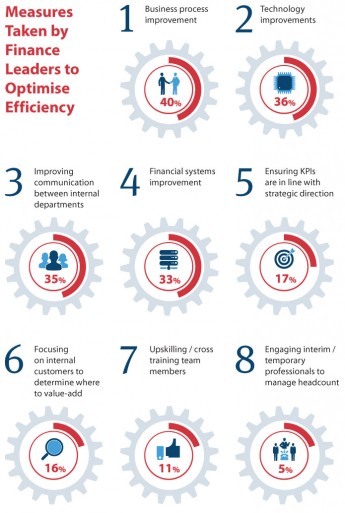Finance teams are prioritising internal reform

Given the current economic environment, finance leaders and their teams are playing a vital role in business. The financial health and, increasingly, the reputation of their firms depend on these individuals.
A recent Robert Half survey of chief financial officers in Japan demonstrates the range of issues that finance leaders are currently facing.
According to the survey, the top three challenges are: a shortage of permanent employees to complete work and projects; inadequate commercial skills among staff; and insufficient time to complete work and projects.
While these weighty issues are not new, they have been exacerbated by ongoing economic and regulatory changes.
It is encouraging to find that, according to the survey, finance leaders are targeting improvement at a micro level—determining how their firms can compete and gain market share—instead of focusing on the macroeconomic climate.
Finance leaders indicated that they are eyeing development and growth, and have outlined their top business priorities for the next 12 months. They are:
- Business process improvement (40% of respondents)
- Technology improvements (36%)
- Improving communication among internal departments (35%)
Finance leaders and their teams are rightly more concerned with business process improvement, given the overwhelming pressure on them to do more with less.
Improvements in technology are considered likely to allow firms to augment their financial management controls and satisfy increasingly stringent regulatory obligations. This would lead to enhanced productivity.
Improving internal communication with other business units would allow members of the finance team to find both areas in which processes might be developed, and strategies for implementation.
This, in turn, would help finance leaders create a roadmap to identify where efficiencies could be attained through centralisation, and what should be left to individual business units.
Today’s finance leaders clearly recognise that their role encompasses a strong mix of financial and broader commercial skills. In addition, they realise they must be able to manage day-to-day tasks and project-based work.
Fuelling and sustaining growth is a formidable challenge, but one for which today’s resourceful and battle-tested finance leaders are a good match.




